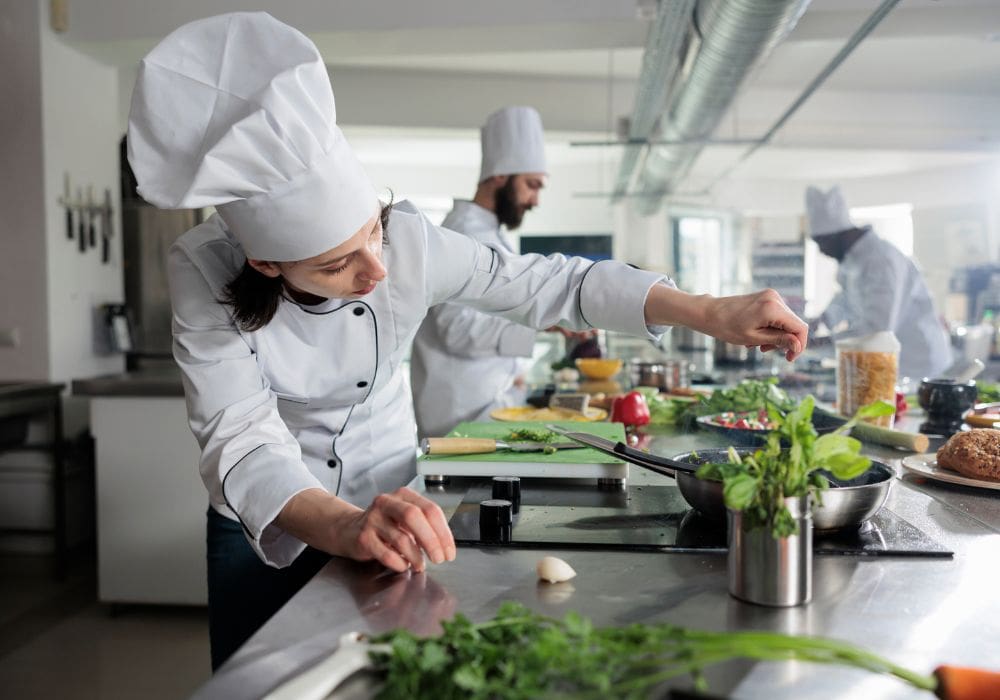It’s been two years since George Brown College launched its food studies program, and students are already cooking up change. In September, they helped the Toronto college’s prestigious Chef School become the first culinary school – and the second post-secondary school – in Canada to achieve a gold Organic Campus designation from the Canada Organic Trade Association (COTA). To achieve gold, 15 certified organic products need to be continuously available at the school.
“It’s a small but meaningful step,” says Lori Stahlbrand, the co-developer behind the first four-year honours bachelor program of its kind in Canada. “[We] are trying to move the needle on sustainability in any way that we can. Food is such a big part of this.”
The world’s food systems are responsible for one-third of greenhouse gas emissions, according to the UN’s Food and Agriculture Organization (FAO). Most of that comes from agriculture, land use and changes in land use, the FAO says, with 39% attributed to processes, including the use of fertilizers. Methane from livestock and rice cultivation accounts for another 35%. But food can also be a way forward, Stahlbrand says. Certified organic food is grown without pesticides or fossil-fuel-derived fertilizers.
“We know that young people are experiencing high levels of eco-anxiety, defined as a chronic fear of environmental doom,” says Stahlbrand, who teaches the program’s Introduction to Food Movements. The process of getting the organic designation gave them hands-on experience and a closer understanding of the local food industry.
“These students are going to be some of the leaders of tomorrow,” Stahlbrand says. “They might be working at food non-profits, as policy advisors, as chefs, as managers in a restaurant. So it’s important to prepare them to operationalize meaningful change in the food sector.”
Through collaborating with the Centre for Hospitality and Culinary Arts and local vendors, students were able to increase the amount of certified organic food in more than 300 culinary arts classes every week beginning in March 2023.
[We] are trying to move the needle on sustainability in any way that we can. Food is such a big part of this.
- Lori Stahlbrand, George Brown College food studies program co-developer
The program’s operations manager, Joey Ma, says that roughly 10% of the produce purchases have been organic since the initiative began. The program has purchased more than 5,000 pounds of organic produce, including herbs, tomatoes, zucchini, pineapple and onions.
Second-year student Ronna Manalo says the goal was to “purchase as much local food as possible” while also working with the school’s budget, understanding which distributors could produce enough volume for a large institution, and addressing the culinary program’s needs. “It was a lot of communication back and forth for an entire semester,” she says.
Nova Scotia’s Acadia University was the first school to achieve the organic designation. Since then, several other schools, including Queen’s University, have been in talks with COTA to see how they could also achieve Organic Campus status, says Tia Loftsgard, COTA’s executive director. For Loftsgard, having a school go organic carries significant weight. “Youth are the future and want to make sustainable changes. Organic is the root to that change,” she says.
Ramona Leitao is a freelance multimedia journalist based in Toronto.





